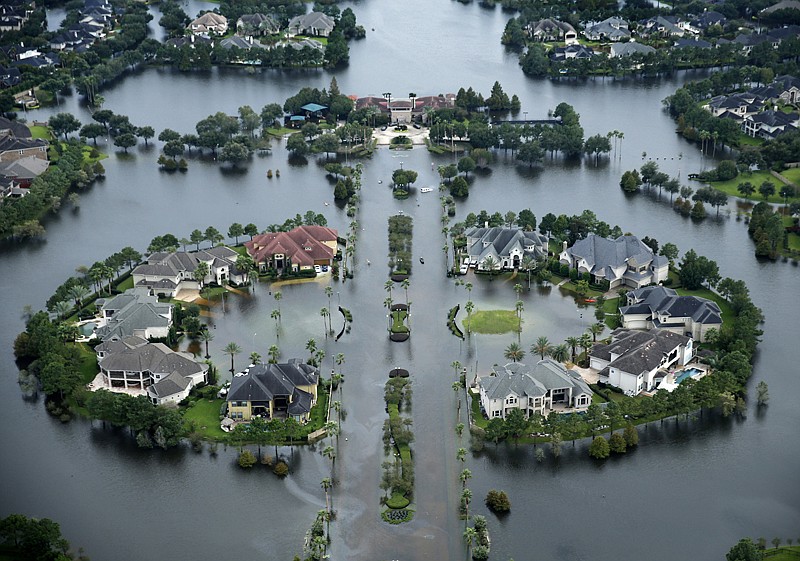HOUSTON-A Houston business group said Friday that Hurricane Harvey's biggest long-term impact on the nation's fourth-largest city likely will be on where and how new homes and structures are built.
The results of Harvey's flooding will likely guide how development goes forward in the city for the next decade, said Patrick Jankowski, the regional economist for the Greater Houston Partnership.
"Every time we get a little bit better understanding, a little bit more technology as we understand development patterns, we'll still be making changes to this We'll have to," Jankowski said after presenting his group's annual Houston employment forecast during a luncheon.
Houston-nicknamed the energy capital of the world because of the many oil and gas companies that call the city home-had been rebounding from the most recent oil downturn when Harvey and its devastating flooding hit in late August.
While final figures are still being tabulated, officials have estimated that more than 136,000 homes and structures were damaged during Harvey in Harris County, which includes Houston.
As the city continues to study potential changes to its stormwater regulations, Harris County this week approved new regulations on building construction in flood-prone locations, rules that will increase the required elevation for new homes and other structures to avoid floodwaters.
While Harvey was devastating to many parts of Houston, it only delayed the city's ongoing recovery from the most recent oil downturn, Jankowski said.
"We've just been through one of the greatest calamities in the history of the world. It's biblical," Kevin Roberts, president of southwest operations for real estate firm Transwestern, said during a panel discussion about Harvey's impact on Houston. "I don't' think you need to see anything else besides the response of the Houston community to give you unbelievable hope this is the most can do, resilient city on the planet."
While the business community in Houston has mostly recovered from Harvey, many individuals and families have yet to return to their homes as the rebuilding process continues.
The partnership's forecast is hopeful that 90 percent of families whose homes were damaged in the hurricane will have finished their repairs by the storm's anniversary.
After Harvey, "people are still going to move here. They move here for the quality of life. They move here because of the economic opportunity. But when they get here, they may be a little more careful where they choose to live," Jankowski said.
Many people at Friday's partnership event focused on how 2017 offered both tremendous lows for the city-Harvey's flooding-along with tremendous highs-the Houston Astros' World Series win.
"That's what people are going to remember, that we had a flood and then a World Series title within six weeks of each other," Jankowski said. "If you want an example of resilience, you can't come up with a better one than that."

